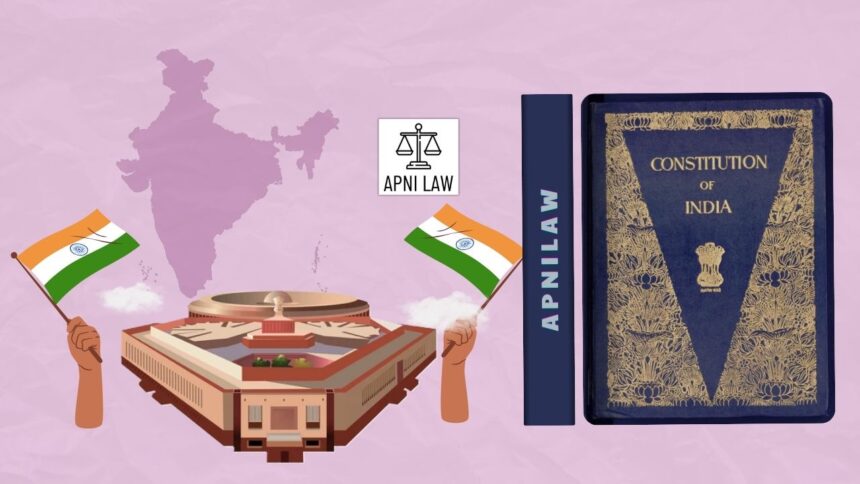Introduction
The Comptroller and Auditor General of India (CAG) is one of the strongest pillars of India’s constitutional democracy. Created under Article 148 of the Indian Constitution, the CAG works as the guardian of public money. Its duty is to ensure that every rupee collected and spent by the government serves the people. The office keeps the government transparent, responsible, and accountable. Because of its independence and integrity, the CAG is often called the watchdog of the nation’s finances.
Constitutional Basis and Appointment
Article 148 gives the CAG its constitutional authority. It defines how the Comptroller and Auditor General is appointed, sworn in, and protected. The President of India appoints the CAG, ensuring a process that values neutrality and fairness. The CAG serves for six years or until turning 65 years old, whichever happens first.
The Constitution gives strong protection to maintain the CAG’s independence. The CAG can be removed only through a special procedure similar to that of a Supreme Court judge, which prevents political interference. The Indian Audit and Accounts Department (IA&AD) supports the CAG in carrying out nationwide audits. Together, they ensure that government funds are used wisely.
Powers and Functions of the CAG
The powers of the CAG extend across the Union and State governments. The CAG audits all receipts and expenditures to confirm that funds are used for their intended purposes. The office also checks whether financial transactions follow the laws passed by Parliament and the State Legislatures.
The CAG examines accounts of ministries, departments, and government-owned companies. It also inspects bodies and projects financed by the government to ensure accountability. After each audit, the CAG submits reports to the President or Governors, who place them before Parliament or State Legislatures. These reports often lead to debates, inquiries, or corrective action.
The CAG performs three main types of audits, financial, compliance, and performance audits. Financial audits check the accuracy of accounts. Compliance audits confirm that spending follows the law. Performance audits assess whether government programs achieve results effectively and efficiently.
Role of the CAG in Ensuring Accountability
The CAG plays a central role in maintaining accountability in governance. By auditing every major government activity, it ensures that public money is not wasted. Its work promotes honesty, transparency, and efficiency in public administration.
The CAG’s reports have exposed several cases of financial mismanagement and corruption. For instance, its findings in the 2G Spectrum Allocation and Coal Block Allocation cases triggered national discussions on corruption and led to policy reforms. These examples show how the CAG’s work can drive change and protect the people’s interest.
Through these audits, the CAG reminds the government that it holds public trust. It ensures that those in power act responsibly and use resources for development, not personal or political gain.
Independence of the CAG
The framers of the Constitution designed the CAG to function independently of the executive. The CAG’s salary and allowances come from the Consolidated Fund of India, meaning the government cannot reduce or withhold them. This financial independence prevents external pressure.
The CAG also enjoys security of tenure. No changes can be made to its conditions of service that might reduce its independence. Moreover, the CAG’s reports do not require prior approval from the government. Once completed, they are directly presented to Parliament or State Legislatures.
The reports are later reviewed by committees like the Public Accounts Committee (PAC) and the Committee on Public Undertakings. These committees question ministries based on the CAG’s findings, ensuring that the government remains answerable to the people.
Challenges Faced by the CAG
The CAG’s role has grown more complex in modern governance. The expansion of digital transactions, privatization, and public-private partnerships has made audits more demanding. Government agencies sometimes delay providing data, slowing down the audit process.
Another challenge is that CAG recommendations are advisory. The government is not legally bound to act on them. This limits the CAG’s power to enforce reforms. There is also a growing need for digital audit systems and real-time financial monitoring tools to keep up with today’s technology-driven administration.
Despite these challenges, the CAG remains a strong voice for integrity in public finance. Its work continues to improve the way the government functions and how it uses taxpayer money.
Modern Relevance of the CAG
In today’s era of digital governance, the CAG’s role has become even more relevant. It no longer just audits financial statements but also examines how effectively technology is used in delivering public services. The office now looks into digital payments, e-governance projects, and welfare programs to assess their performance and impact.
The CAG also supports the growing movement of social audits, where citizens take part in monitoring public spending. By engaging directly with the public, the CAG strengthens trust in institutions. Its reports promote better governance and help shape transparent policy decisions.
FAQ Section
1. What is the role of the CAG under Article 148?
Article 148 establishes the Comptroller and Auditor General and defines its authority to audit government accounts and ensure financial accountability across the Union and States.
2. How does the CAG remain independent from the government?
The CAG’s salary comes from the Consolidated Fund of India, and removal from office follows the same strict process as a Supreme Court judge. These safeguards protect it from political pressure.
3. Why is the CAG called the “watchdog of public finance”?
Because it audits how the government collects and spends public money, ensuring that funds are used legally, efficiently, and for public welfare.
Conclusion
The Comptroller and Auditor General (CAG), established under Article 148, stands as the cornerstone of financial accountability in India. It ensures that every act of spending or collection of revenue aligns with constitutional values and public interest.
While the challenges of modernization and compliance remain, the CAG continues to adapt and uphold transparency. Its independence, integrity, and commitment make it one of India’s most respected constitutional institutions. By safeguarding the nation’s finances, the CAG strengthens both democracy and public trust.








